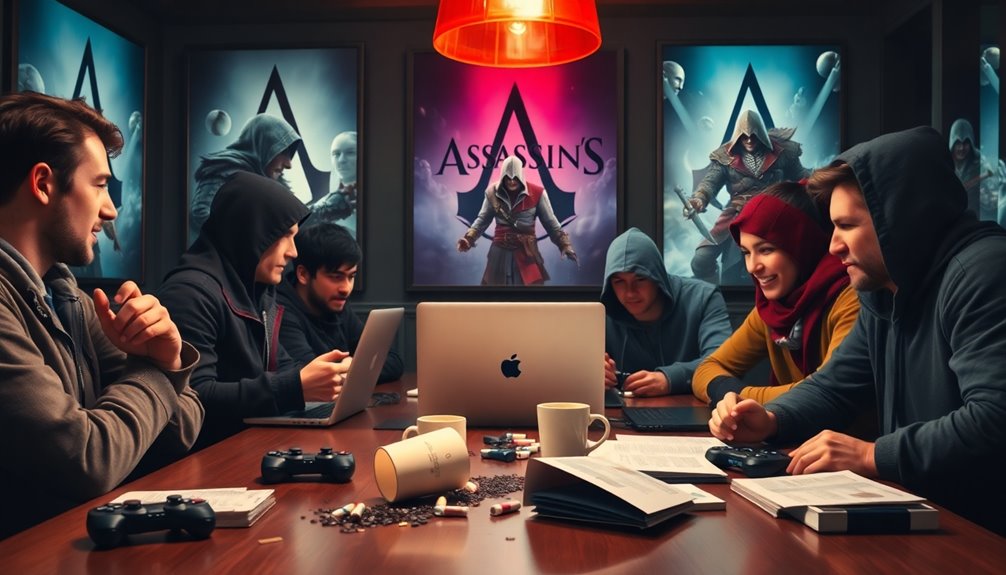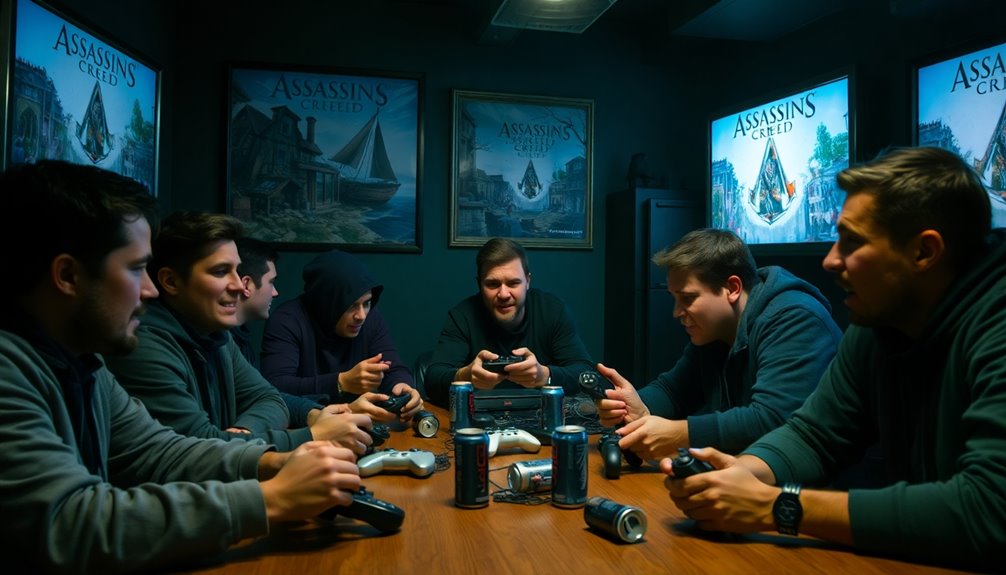
As you dive into the world of Assassin’s Creed, you’ll quickly discover that its blend of history and fiction isn’t without controversy. The game features Yasuke, the first African samurai, but critics argue over how accurately he’s portrayed. While some celebrate his inclusion, others see it as a missed opportunity for authentic Asian representation. This debate has sparked intense discussions about cultural sensitivity and historical accuracy within the gaming community.
Ubisoft, the game’s developer, has faced backlash for its handling of historical figures and settings. Critics have pointed out inaccuracies, such as the use of square tatami mats and misplaced Tory gates, that detract from the immersive experience. The Japanese community has expressed concerns about how their culture and history are depicted, raising accusations of cultural appropriation. Despite Ubisoft‘s attempts to consult historians, it seems they haven’t fully respected the intricacies of the culture they’re portraying. Additionally, the game has faced multiple delays due to these ongoing controversies, affecting its release timeline.
Ubisoft’s portrayal of historical elements has sparked backlash over inaccuracies and cultural appropriation, raising concerns within the Japanese community.
Marketing blunders have compounded these issues. Ubisoft used a flag from a Japanese historical re-enactment group without permission, leading to an apology. Additionally, a figurine featuring a one-legged Tory gate, a symbol related to Nagasaki’s atomic bombing, sparked outrage. These missteps have led to delays in the game’s release, and many fans attribute these setbacks to the controversies surrounding cultural representation.
Public perception of the game has suffered as a result. While some defend Ubisoft’s creative liberties, many fans express disappointment in how the studio has handled historical elements. Social media discussions have been rife with both toxic sentiments and misinformation, further complicating the narrative around the game. The gaming community finds itself divided; some appreciate the artistic interpretation of history while others demand a more respectful representation of cultural nuances.
In response to the backlash, Ubisoft has issued apologies and emphasized that their games are a blend of fact and fiction. This approach, while understandable from a creative standpoint, hasn’t entirely quelled the frustrations of those who feel misrepresented.
As you navigate these discussions, it’s essential to recognize the delicate balance between storytelling and historical integrity. The intense debates surrounding Assassin’s Creed highlight the broader conversation about cultural representation in gaming, and how creators can better engage with the communities they portray.









